The Indian women who keep silent about sexual violence
- Published
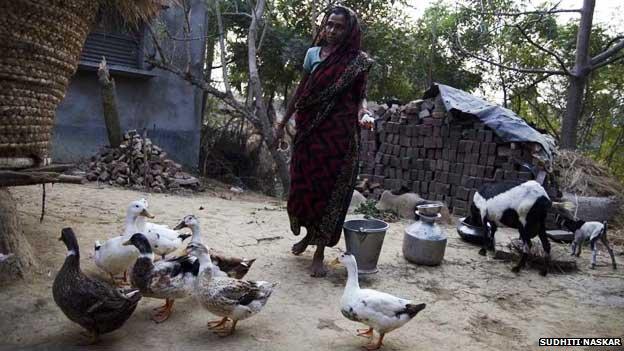
Murshidabad in rural West Bengal is in many ways a typical rural Indian district: a dusty, remote place dotted with villages that have little access to healthcare or infrastructure.
Writer Sudhiti Naskar ensconced herself in this community to find out more about the daily lives of women and she discovered that many women did not report rape or acts of sexual violence.
Here she explains why, even though West Bengal has the third highest rate of crimes against women in India, these women chose to remain silent.

1. The girl needs to be married off
I heard a story in the village, about a teenage girl who was raped here four years ago. She was attacked when she went to defecate in the open, a way of life for most of these villagers.
Her parents did not press any charges even though they knew who did it. In fact many villagers told me he had been accused of another rape in the village.
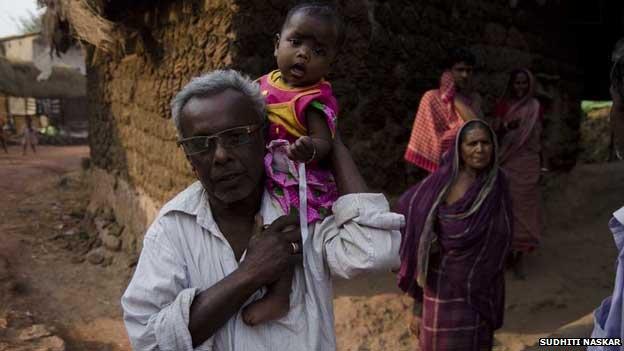
Raising girls in such remote and rural areas means families are frequently confronted with entrenched attitudes towards women
"The girl needs to be married off in a few years," one of her relatives said.
Finding a suitable groom would be hard if her rape was made public, virginity being an essential criteria for marriage in such rural societies.
The girl and her parents - who don't want to be identified - have found solace in anonymity and the sympathy they get from their relations and friends.
Even with all that support, they have not been able to confront the rapist. Apparently, bringing the culprit to justice would mean going public.
It isn't worth the pain for them. The girl who now studies in a college wants to move on and heal while keeping quiet.

2. Fear of getting a 'bad name'
Bandana Bagdi, a landless farmer's wife, says she was accosted in the same village.
"I could have been raped, but I ran away," she says, in her ramshackle hut by a pond.
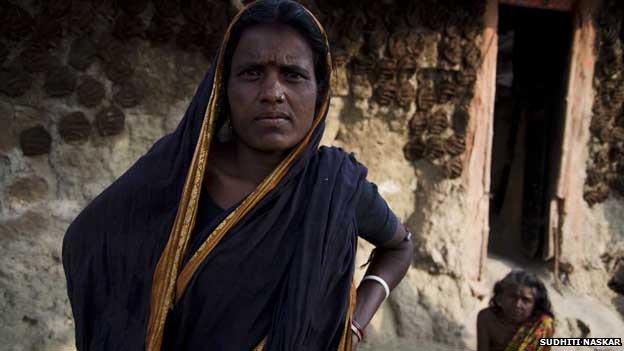
Bandana Bagdi says she was turned away by villagers when attempted to confront a man who tried to attack her
When, along with her husband and brothers, she went to confront the culprit she was turned away by the villagers.
"They said I was a bad woman after a good man," she says. Traditional rural societies, such as here, are swift to put the blame on the victim.

3. The attacker is more powerful
In remote Kelai village, Golechera Bewa, 60, feels helpless. Her youngest daughter Ajida Khatun, 19, was coming home at dusk past a deserted stretch when a man tried to drag her in a corner. Ajida ran to save herself.
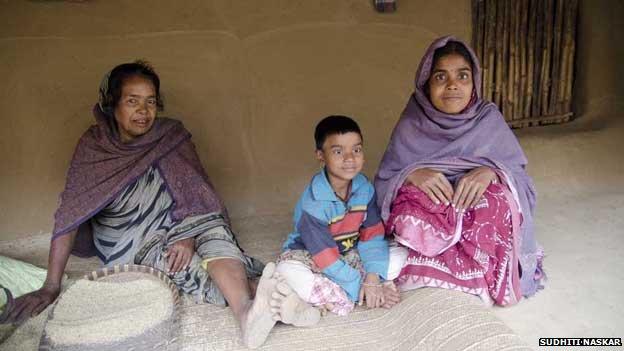
Golechera Bewa said going to the police was too much trouble for a woman like her
Going to the police would be "too much [of a] trouble" for an "illiterate, poor old woman", she said. The village council was an option, but going there would give the girl a "bad name".
Ms Bewa says: "Honour is the only thing that we have. Without that we can't live in these villages."
Some of her hesitation comes from the fact that the perpetrator is well-off, making her feel powerless. With men going to the Middle East for manual labour, there has been an influx of money and that has changed power dynamics in the area.
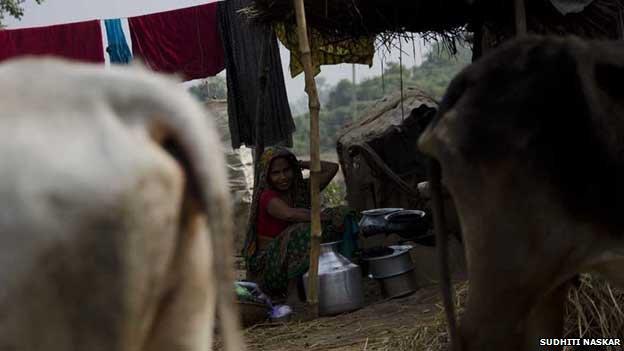
In these rural communities, many women feel like they are at the bottom of the pecking order
The "new money" has caused arrogance, says Rajib Lochan Roy, a lawyer in the area who has represented several rape victims.
"There's a tendency to justify the bad behaviour through money and power," he says.
He says it is like the old times, when "the feudal lords would assert their will on the women belonging to the economically weaker sections".
Often, such cases are privately settled with money, never making it to the police record.

4. The honour of a village
Like individual honour, the honour of a village is also a reason rapes are not reported. Villages here are connected by marriages and bloodlines through generations.
If a case is filed, the reputation of a whole community might be at stake.
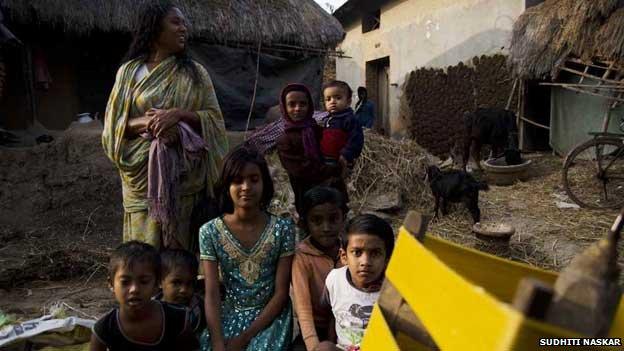
Villages are connected by marriages and bloodlines through generations
This creates pressure from within the community to hush up the incidents; if it is kept silent there will be no public controversy and the peace will be kept.

5. Are the police under political pressure?
The case of Bapi Das's wife was a disturbing one. The police recorded it as a case of consensual sex followed by murder.
But the post-mortem report contradicted this, saying it was a case of forced sex. Bapi Das is now pursuing a petition with the Human Rights Commission in Delhi and Calcutta seeking justice.
A local citizens' human rights group that helped Mr Das to file the petitions feels that the police are under political pressure to undercount cases of rapes.